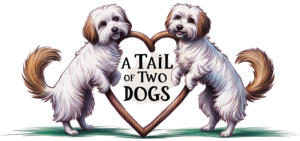At week five, puppies are becoming more active, playful, and independent, while their mother is gradually reducing her involvement in nursing. This is a critical stage in their development, and providing the right care ensures they grow up healthy and well-socialized. Understanding their needs at this stage is essential for their long-term health and behaviour. In this post we will explore how to care for both Mum and puppies in week 5.
Nutritional Needs for Puppies in Week 5
By the fifth week, puppies begin transitioning from their mother’s milk to solid food. This process, called weaning, should be gradual to avoid digestive upsets. Introduce high-quality puppy food softened with warm water or puppy milk replacer. Puppies should be fed small portions multiple times a day, typically four meals. Choose a food formulated specifically for puppies to meet their nutritional needs, including protein, fat, and essential vitamins. Some puppies may still attempt to nurse from their mother, but her milk production will naturally decrease, encouraging them to eat solid food.
Caring for the Mother in Week 5
As the puppies begin weaning, their mother will spend less time with them. However, she still plays a crucial role in their development. She may discipline them by growling or gently nudging them away when they become too rough. Her diet should remain nutrient-rich to support her recovery and the final stages of nursing. Provide her with high-quality food, and ensure she has a quiet place to rest away from the increasingly active puppies. She may need a little more space as the puppies become more independent. If she shows signs of stress or discomfort, give her some alone time while still allowing her to supervise her litter.
Socialization and Playtime
Week five is a critical period for socialization. Puppies become more interactive with each other, learning bite inhibition and communication skills. This is when they start to show distinct personalities. Introduce them to new sounds, surfaces, and gentle handling by different people to ensure they grow into well-adjusted adult dogs. Allow them to explore different textures like carpet, grass, and tile to improve their coordination. Toys are essential at this stage, as they encourage play and mental stimulation. Soft, chewable toys help with teething, while interactive toys stimulate their curiosity. Avoid toys that are too small or have detachable parts that could be swallowed.

Introducing Basic Training
Although formal training isn’t necessary at this age, introducing basic concepts like name recognition and simple commands can be beneficial. Use positive reinforcement techniques such as treats and praise when puppies respond to their name or follow simple instructions like “come” or “sit.” This stage is also a good time to start potty training. Set up a designated area with puppy pads or take them outside frequently. Puppies at this age have short attention spans, so keep training sessions brief and fun.
Monitoring Health and Development
Puppies should be gaining weight steadily and displaying curiosity and energy. Check their eyes, ears, and skin for any signs of infection or irritation. Common concerns at this stage include bloated bellies from overeating or minor digestive issues due to dietary changes. If a puppy appears lethargic, has persistent diarrhoea, or isn’t gaining weight, consult a veterinarian. Ensure that deworming and vaccinations are on schedule. Most puppies receive their first vaccinations around six to eight weeks, but your vet may recommend deworming at week five. Regular check-ups will ensure they remain healthy as they grow.
Managing Sleeping Arrangements
Although puppies are more active, they still require plenty of sleep. Provide a comfortable, safe sleeping area with soft bedding. They will still sleep in a group, which helps them stay warm and feel secure. The mother may choose to sleep away from them at times, but she will still check in regularly. If the whelping area is no longer suitable due to increased activity levels, consider expanding their space or moving them to a more spacious playpen.

Ensuring a Clean Environment
As puppies become more mobile, keeping their area clean is essential. Accidents will happen, so clean up promptly using pet-safe disinfectants. Replace bedding frequently and provide fresh water at all times. A hygienic environment reduces the risk of infections and keeps both the mother and puppies comfortable.
Gradually Increasing Independence
By the end of week five, puppies should be spending more time away from their mother and relying more on solid food. This is an important step toward their eventual transition to new homes. Encourage their independence by allowing them to explore under supervision. Gentle human interaction helps them develop trust and confidence. Socializing them with new people, sounds, and safe experiences will make their transition to their forever homes much easier.
Final Thoughts
Week five is an exciting time in a puppy’s life. It feels like a huge difference in development has been made from the previous week. Knowing how to care for both Mum and puppies in week 5 will help them to grow into happy, healthy, and well-adjusted dogs. Ensuring they receive proper nutrition, socialization, and health monitoring is crucial during this stage. The mother also needs attention and support as she continues to recover from giving birth and adjusts to her puppies’ increasing independence. By providing a balanced approach to care, both puppies and their mum will thrive in this crucial week of development.
Discover more from A Tail of Two Dogs
Subscribe to get the latest posts sent to your email.





Leave a Reply